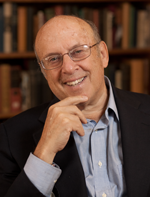
Jeffrey Carduner, Aesthetic Realism Consultant, writes:
A great poet of the 17th century, and a woman of our own time who writes sincerely about her life and Aesthetic Realism consultations: are they a means of seeing what our nation needs in order to be successful and kind? Yes! Read how, in “Honesty, Nations, & Poems,” the thrilling new issue of The Right of Aesthetic Realism to Be Known.
The commentary by Ellen Reiss begins:
Dear Unknown Friends:
We continue serializing a 1966 lecture by Eli Siegel important for the life of everyone. It’s on poetry of complaint. And at the point we’ve reached, Mr. Siegel has discussed poems by Chu Yuan of 4th-century-BC China, Thomas Wyatt, Emily Brontë, and Byron. Now he speaks briefly, but beautifully, definitively, and very kindly, about a poem by John Milton.
We publish too part of a paper by actor and Aesthetic Realism associate Carol McCluer, from a recent public seminar titled “Honesty & Deception in Love & Life—How Should a Woman See These?” In America today the matter of honesty-or-deception is more a subject of discussion (and outrage) than it ever was before. And, as I wrote recently, that fact in itself is very good. For there to be a hubbub about untruthfulness, a conscious intensity about it, can be a preliminary to something that has been so much lacking in people: a real love for truth.
Honesty & Falsity Centuries Ago
I am going to bring together the two parts of this TRO by saying something about honesty in relation to the Milton poem that Mr. Siegel discusses. That poem deals with Milton’s blindness, and Mr. Siegel comments by way of background: “It is said that he could have avoided going blind in 1652; but he wanted to answer Salmasius, who had attacked the English people for what they did as to the king.”
The English Civil Wars (1642-51), and the overthrow of Charles I, can seem very far away. But they have to do with something America and humanity need to be honest about now. And John Milton is one of the persons in this world who most tried to be honest. The history of the time is intricate, and I am not discussing the happenings of then with any specificity. But they are part of what Mr. Siegel spoke of as the biggest, most fundamental matter of our own time: To whom should a nation, with its land and wealth, belong? To whom should the world belong? In the 17th century in England the matter took the form of: Which should be supreme—a king or Parliament?…Read more